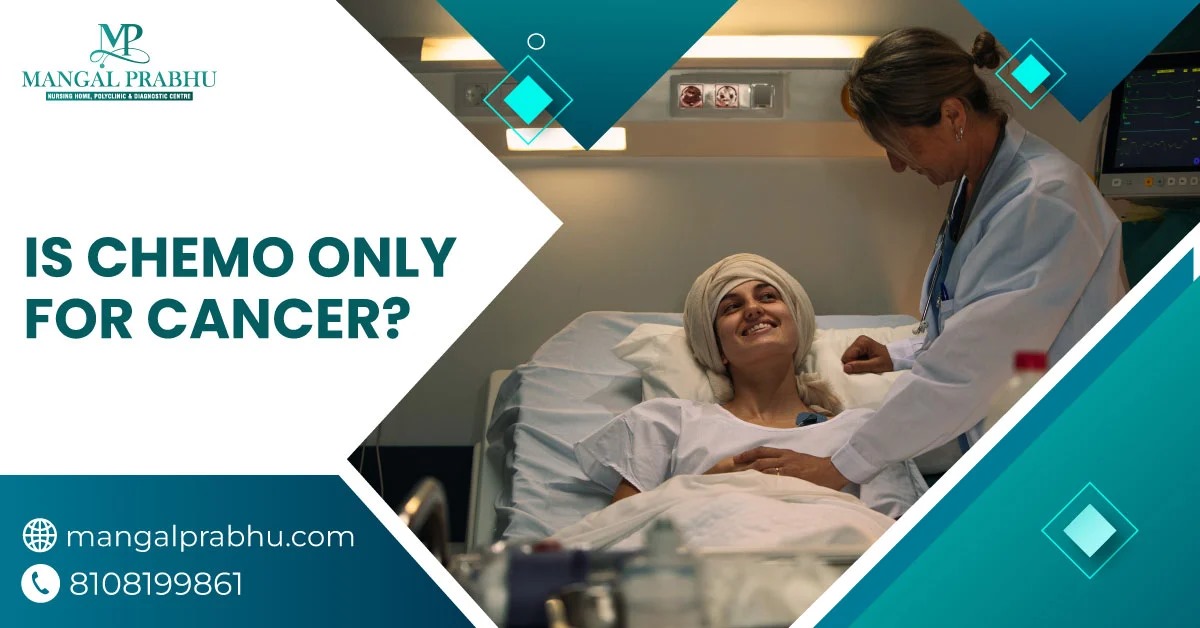
What’s the first word that comes to your mind when you hear the word chemotherapy? Cancer. Chemotherapy is the most common treatment for different types and stages of cancer. Depending on the severity of the cancer, oncologists in Navi Mumbai perform chemotherapy either as a standalone treatment or in conjunction with surgery, radiation therapy, hormone therapy, and other procedures.
The question is, is chemotherapy only for cancer? No! It’s also used to treat certain autoimmune disorders and blood disorders. Let’s see what chemotherapy can treat.
Common Uses of Chemotherapy
For Cancer
More than a hundred types of chemotherapy drugs are used to treat different types of cancer. Cancer cells are known for multiplying rapidly. The initial stage of cancer is often confined to a specific organ, but it can spread to the surrounding tissues, lymph nodes, and organs if left untreated. Treatment gets harder as the cancer reaches an advanced stage.
Chemotherapy drugs kill the rapidly multiplying cancer cells. The goal of the treatment is to stop the cancer cells from growing or replicating. The number of chemotherapies required for each patient can vary depending on their cancer diagnosis and how far it’s spread.
For Non-Cancerous Diseases
Chemotherapy can be used in low doses or high doses for non-cancerous conditions, especially autoimmune disorders.
i) Autoimmune Disorders:
Lupus and other autoimmune disorders, in which your immune system attacks your organs and tissues, can be treated with chemotherapy. The therapy can suppress an overactive immune system.
ii) Bone Marrow Disorders:
Bone marrow diseases in which your bone marrow fails to produce adequate red blood cells might require chemotherapy combined with blood transfusion and bone marrow transplant. Chemotherapy is often performed before a bone marrow transplant to destroy the damaged bone marrow cells.
iii) Infections:
Some types of severe and persistent fungal infections can be treated with chemotherapy. Antifungal agents are used to offer relief to the patient. Viral infections that do not respond to the antiviral medication might also require chemotherapy, especially in patients with compromised immune systems.
Potential Side Effects of Chemotherapy
As mentioned earlier, chemotherapy kills cells that grow rapidly, which might also include the healthy cells in your gut and those responsible for your hair growth. So, side effects are not uncommon after each session. The severity of the side effects and how long they last depends on the chemo drugs you are given and the dosage. Here are possible side-effects of chemotherapy:
- Fatigue
- Hair loss
- Mouth sores
- Memory loss (also called chemo brain)
- Fertility issues
- Nausea and vomiting
- Loss of appetite
- Diarrhea or constipation
The side effects can vary from person to person. These are short-term issues that resolve on their own once the treatment stops and the new cells start to grow. Chemotherapy is also associated with long-term side effects, such as damage to your vital organs, like the heart, lungs, and reproductive system.
Conclusion
You can learn more about different types of chemotherapies and multiple methods used to administer the chemotherapy drugs into your body at the chemotherapy hospital in Navi Mumbai.



